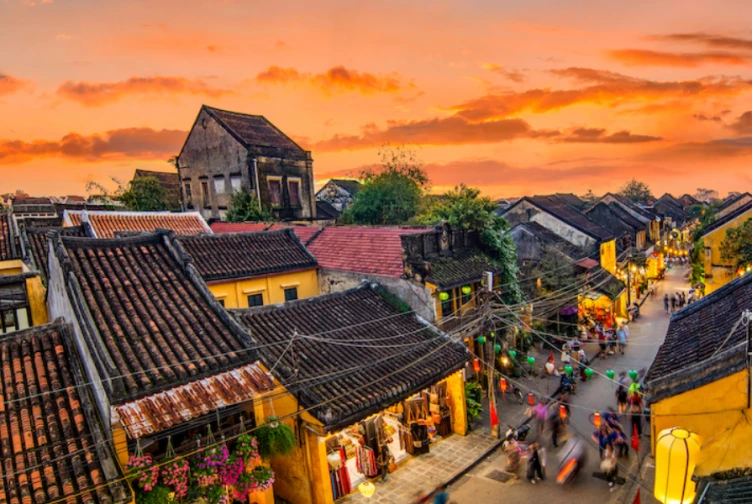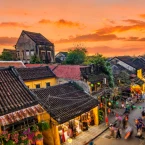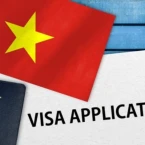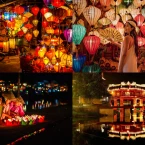_1034x861.jpg)
What Are The Religions In Vietnam ? Top 06 Main Religions In Vietnam
Content []
The forthcoming article explores the primary beliefs and religions in Vietnam, shedding light on their profound influence on the lives of the Vietnamese people. Let's explore with Auasia Travel the top 06 main religions in Vietnam.
Table of Contents
I. What is religion?
What is religion? The term "religion" originates from the Latin word "legere," signifying the gathering of additional sources of supernatural power. Beyond its spiritual implications, religion has historically been perceived by authorities as a means to foster community and national solidarity. Throughout ancient times, it has been recognized as a tool for enhancing unity and cohesion within societies.
.jpg)
II. Main religions in Vietnam
1. Buddhism ( Phật Giáo )
.jpg)
Buddhism in Vietnam represents a localized form of Buddhism that was introduced to Vietnam from India and China. It possesses distinct characteristics when compared to the original Buddhism and its variations in other regions. Despite these differences, Buddhism stands as the most influential religion in Vietnam. In Buddhism, there are two major sects: Mahayana Buddhism and Theravada Buddhism. However, despite the distinction between Mahayana and Hinayana, the ultimate goal of Buddhism is to help people escape reincarnation and live happily and happily.
.jpg)
The core ideology of Buddhism emphasizes guiding people to lead lives oriented towards spiritual elevation, aiming to construct a virtuous and joyous existence in the present moment. This philosophy has deeply permeated the mindset and lifestyle of the Vietnamese people, leaving strong imprints of Buddhism on Vietnamese culture.
2. Catholicism ( Công Giáo )
Catholicism is the main religion in Vietnam. Vietnamese Catholicism constitutes a segment of the Catholic Church, operating under the guidance of the Bishop in Vietnam and in communion with the Pope. Vietnam stands as the fifth Asian nation with the highest proportion of Catholics in its population, trailing East Timor, the Philippines, Lebanon, and South Korea. In terms of sheer numbers, Vietnam holds the fifth position in Asia, following the Philippines, India, China, and Indonesia.
.jpg)
Catholicism in Vietnam serves as an institution disseminating the uplifting message and gospel of Jesus Christ, aimed at evangelizing individuals and promoting the sharing of love and happiness among communities. Through the Holy Book and Sacred Tradition, Catholics gain insight into the power and vitality of God. Those who maintain faith in God experience continuous protection, possess hearts filled with love, receive good news and blessings, and hold the capacity to guide sinful souls towards salvation.
3. Protestantism ( Đạo Tin Lành )
Protestantism, a branch of Christianity, was introduced to Vietnam around the late 19th and early 20th centuries, making it a relatively recent arrival compared to other imported religions. In Vietnam, Protestants staunchly uphold the Bible as the sole foundational standard for their beliefs and practices.
.jpg)
Adherents of Protestantism focus on addressing the challenges of everyday life. They advocate for leading a refined existence, promoting ethical customs, and discouraging practices such as engaging in illicit relationships, gambling, drug use, and swearing. These moral teachings contribute to the appeal of Protestantism, drawing a significant number of followers who are drawn to its emphasis on a conscientious and principled way of life.
4. Cao Dai ( Đạo Cao Đài )
.jpg)
The Cao Dai religion, also referred to as Caodaism, emerged in southern Vietnam in 1926 as a deity - worshiping faith. The term "Cao Dai'' translates to "a high place," symbolically representing a divine realm where God holds sway. Cao Dai stands as a novel religious synthesis, blending elements from various major religions.
.jpg)
Adherents of Cao Dai religion in Vietnam adhere to fundamental tenets such as nonviolence, honesty, social engagement, assistance to others, prayer, and ancestral worship. These principles manifest in daily practices like fasting and the regular recitation of Buddha's name. The overarching aspiration is to bring about prosperity and happiness for all living beings. The ultimate objective is to liberate all entities from the cycle of reincarnation and facilitate their return to Heaven.
5. Hoa Hao Buddhism ( Phật Giáo Hoà Hảo )
Hoa Hao Buddhism, originating in the South in 1939, has garnered a substantial following and holds a legal organizational status among the religions in Vietnam. Emphasizing simplicity in worship, it encourages a return to inner reflection rather than fixating on external appearances.
.jpg)
Hoa Hao Buddhism is notably engaged in various charitable endeavors, demonstrating a commitment to social service. Activities include organizing medical examinations and treatments rooted in Southern Oriental medicine, supplying medications and acupuncture, assisting financially challenged patients in undergoing eye surgeries, and offering support to bereaved families, amounting to tens of billions of dong annually. The followers actively participate in disaster relief efforts, contribute to the construction of roads, bridges, and charity houses, dedicating both substantial financial resources and tens of thousands of working days to these initiatives.
6. Ancestor worship ( Thờ cúng tổ tiên )
Among the traditional beliefs in Vietnam, ancestor worship is the main religion in Vietnam. It is a customary practice for all Vietnamese, regardless of age, to pay homage to their ancestors and the departed. The profound awareness that "all human beings have their roots" is deeply ingrained in the Vietnamese psyche, transcending generations and geographical boundaries, whether they reside in their homeland or live in exile abroad. Ancestor worship in Vietnam stands as a distinctive cultural tradition deeply woven into the fabric of Vietnamese society.
.jpg)
In the Vietnamese conceptual framework, ancestors encompass not only the immediate family's previous generations (parents, grandparents, great-grandparents, etc.) but also individuals credited with preserving or establishing Vietnam's territorial integrity.
The observance of worship ceremonies occurs on traditional festivals, or on significant occasions like marriages, house construction, buffalo purchases, exams, and journeys. Through these rituals, the Vietnamese convey their affection and gratitude to their ancestors, creating a meaningful connection to their cultural heritage.
Above you will find general information about the main beliefs and main religions in Vietnam. If you have any related questions, please contact us.
.jpg)
Tap to discover more information about:
>> Best pagodas in Vietnam
>> Vietnam Travel Guide
>> Vietnam Package Tour 10 days
>> Vietnam Packages Tours
Read this next
Quick Contact
WHAT DO CUSTOMERS SAY ABOUT US?
Look at the following reviews from our customers




